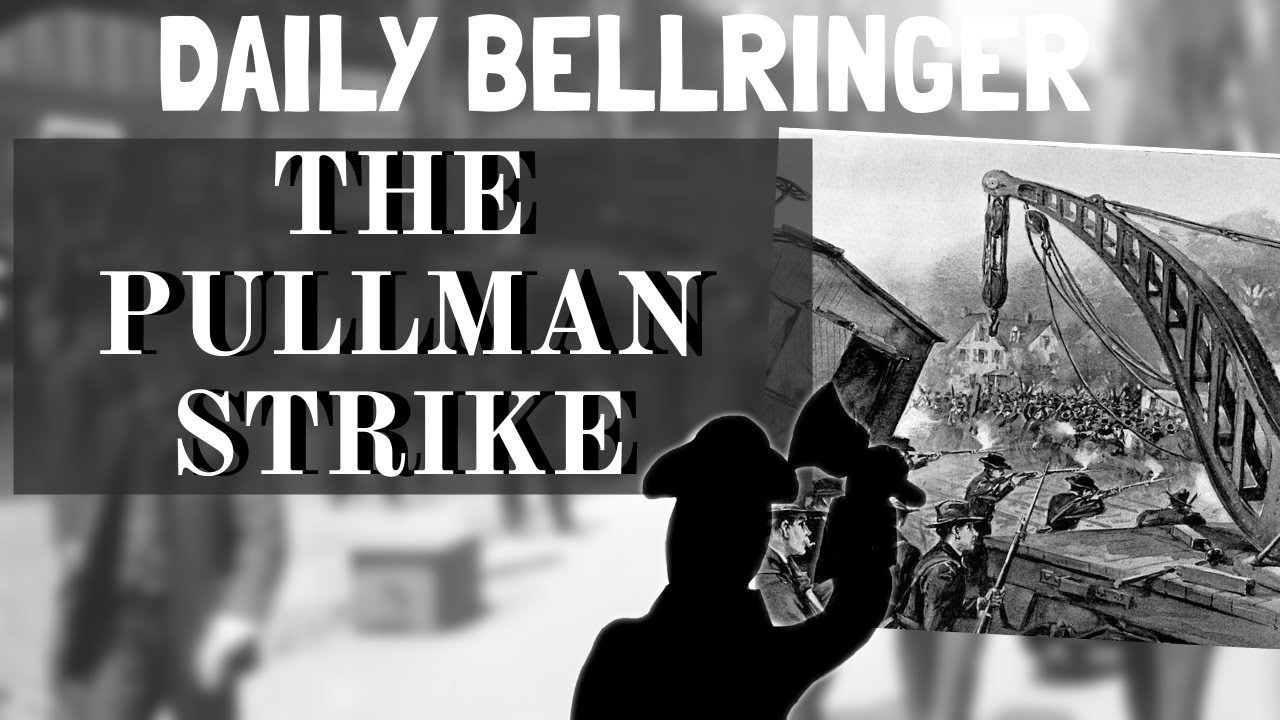Robber Barons or Captains of Industry?
Summary
TLDRThe Gilded Age in the United States was marked by a sharp divide between wealthy industrialists and struggling workers. Business tycoons, known as 'captains of industry,' amassed vast fortunes, contributing to rapid economic growth but often using ruthless tactics, such as exploitation and political corruption. While these 'robber barons' faced criticism for their methods, many, like Andrew Carnegie and John D. Rockefeller, also gave away millions to charitable causes. Their philanthropic efforts set the stage for modern figures like Warren Buffett and Bill Gates to follow, raising the question of whether such practices are still relevant today.
Takeaways
- 😀 The Gilded Age was a period of economic growth in the U.S., marked by both prosperity and exploitation.
- 😀 Business tycoons, known as 'captains of industry,' amassed vast fortunes while workers suffered low wages and unsafe conditions.
- 😀 The U.S. became the most powerful capitalist nation on Earth between the Civil War and the 20th century.
- 😀 Robber barons used unethical tactics like violence, fraud, and political corruption to eliminate competition and expand their monopolies.
- 😀 Many business magnates of the Gilded Age were also philanthropists, donating significant portions of their wealth to charitable causes.
- 😀 Andrew Carnegie, a Scottish immigrant, gave away over $350 million to build libraries and colleges, believing in a moral duty to give back.
- 😀 John D. Rockefeller controlled 90% of the country's oil industry and donated more than $500 million to charity during his lifetime.
- 😀 Investigative journalists, known as muckrakers, exposed the exploitation of workers and unethical business practices, leading to reform efforts.
- 😀 The rise of monopolies and the harsh working conditions led to legislation aimed at improving labor rights and breaking up large companies.
- 😀 The philanthropic legacies of figures like Carnegie and Rockefeller influenced future entrepreneurs like Warren Buffett and Bill Gates to pledge their fortunes to charity.
- 😀 The question remains: are robber barons a thing of the past, or do similar practices still exist in modern-day America?
Q & A
What were the main contrasts during the Gilded Age in the United States?
-The Gilded Age was a time of contrasts, with business tycoons celebrating their wealth and shaping the nation's economic future, while many workers endured low wages and unsafe working conditions.
How did business tycoons influence the U.S. economy during the Gilded Age?
-Business tycoons, also known as captains of industry, played a significant role in shaping the U.S. economy by driving growth through industrial expansion, technological advances, and unregulated profits.
What were the negative aspects of industrial growth during the Gilded Age?
-Despite industrial growth, workers faced long hours, low pay, and dangerous working conditions. Many businesses used unethical practices such as violence, fraud, and political corruption to maintain monopolies and eliminate competition.
Who were the 'robber barons' and what were their practices?
-Robber barons were wealthy businessmen who used ruthless methods to strengthen their monopolies, often engaging in union busting, violence, fraud, and political corruption to eliminate competitors and maximize their profits.
What role did Muckrakers play during the Gilded Age?
-Muckrakers were investigative journalists who exposed the unethical practices of business tycoons, such as exploitation and corruption. Their work laid the foundation for legislation that aimed to improve working conditions and curb monopolistic practices.
How did some of the wealthy businessmen give back to society during the Gilded Age?
-Some wealthy businessmen, like Andrew Carnegie and John D. Rockefeller, engaged in philanthropy by donating large sums to public causes, such as building libraries, supporting education, and funding charitable organizations.
What did Andrew Carnegie believe about philanthropy?
-Andrew Carnegie believed that wealthy individuals had a moral obligation to give back to society. He spent over $350 million on public libraries, educational institutions, and other philanthropic projects.
How much did John D. Rockefeller donate to charity, and what was his influence on future philanthropists?
-John D. Rockefeller donated more than $500 million to charity during his lifetime. His charitable efforts inspired future business leaders like Warren Buffett and Bill Gates to give away their fortunes as part of the Giving Pledge.
What is the 'Giving Pledge' and how does it relate to the practices of past tycoons?
-The Giving Pledge is a commitment by wealthy individuals, like Warren Buffett and Bill Gates, to donate the majority of their wealth to philanthropic causes. This practice draws inspiration from the philanthropic actions of past business tycoons like Carnegie and Rockefeller.
Are the practices of robber barons still present in modern-day America?
-The script poses the question of whether robber barons are a thing of the past or if their practices are still evident in modern-day America, suggesting that the legacy of wealth inequality and business monopolies may continue to persist in the 21st century.
Outlines

Esta sección está disponible solo para usuarios con suscripción. Por favor, mejora tu plan para acceder a esta parte.
Mejorar ahoraMindmap

Esta sección está disponible solo para usuarios con suscripción. Por favor, mejora tu plan para acceder a esta parte.
Mejorar ahoraKeywords

Esta sección está disponible solo para usuarios con suscripción. Por favor, mejora tu plan para acceder a esta parte.
Mejorar ahoraHighlights

Esta sección está disponible solo para usuarios con suscripción. Por favor, mejora tu plan para acceder a esta parte.
Mejorar ahoraTranscripts

Esta sección está disponible solo para usuarios con suscripción. Por favor, mejora tu plan para acceder a esta parte.
Mejorar ahoraVer Más Videos Relacionados

Chapter 1 | The Gilded Age | American Experience | PBS

CONTROVERSIES Over the Role of GOVERNMENT in the Gilded Age [APUSH Review 6.12] Period 6: 1865-1898

The Pullman Strike | Daily Bellringer

American Yawp Chapter 16 Lecture

What was the Gilded Age? | US History | Khan Academy

04 How the Other Half Lives
5.0 / 5 (0 votes)
